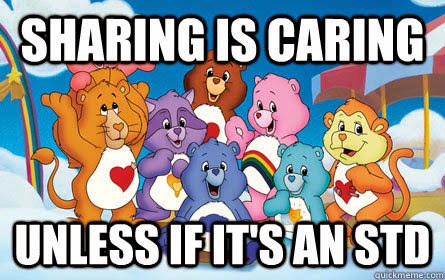Hypothetically speaking, you visit an online shopping website, view some bags, take a look at the details and decide to buy later. How often have you seen ads of those same bags on other websites offering a discount ?
Mumbai - Goa flights - say no more and you'll have a host of flight options provided to you by Google, am I right?
Most of our emails have promotional discounts offers and announcements by the brands, isn't it?
What do the above situations imply? The power of digital marketing!
Digital marketing - is the buzzword today, with many definitions but simply put, it is the marketing of products and services via the internet.
Digital is the new wave that hit us in the early 2000s and since then it has encapsulated our lives. Some of the critics today refer to us as the slaves of the digital age. From smart phone, tablets, smart TVs to our laptop screens - digital media surround us.
Infact the major reason why the economy withstood the major blow of demonetisation was all thanks to digitisation of payments and transactions.
Today with just 3 clicks you can shop online, book tickets, transfer money and what not!
Every brand, smallest to the biggest multinationals has a digital presence. They have a major chunk of their marketing spends allotted for digital media. There are digital strategists who focus on establishing a base, creating, promoting and maintaining the brand online. Advertising and marketing efforts on digital are fruitful predominantly because of real time interaction and customer feedback received online.
So speaking of digital marketing - let's break down the complex jargon into simpler layman language. (You're welcome!)
1) Search Engine Optimization
Popularly known as SEO, it includes efforts to ensure your website is given a higher ranking in the Search Engine Result Pages (SERP). 'Keywords' are the words or phrases you enter in your coding which are relevant with your website's content so that when a user enters those combination of words, your website is provided as an organic result. Search engines use a discreet algorithm to rank websites. Hence inclusion and selection of keywords is of supreme importance to web marketers.
2) Search Engine Marketing
All those ads you see on the first three results of Google are a part of SEM. Here's a hint - spot the tiny boxes marked with 'Ad' that distinguish these "paid results." Web marketers undergo a bidding system in order to get the higher position for their ad.
3) Content Marketing
Content Marketing is all about storytelling. It focuses on build a long term relationship with your target audience based on content relevant to them. This is provided by mediums such as blogs, vlogs, viral videos etc. Wordpress.com OR Blogger.com are the best portals to run a blog.
4) Social Media Marketing
This includes all the digital PR initiatives conducted over social media sites such as Facebook, Twitter, Instagram. People are well versed with this aspect and it includes tactics such as regular posts, hashtags, contests, sponsored posts, trending (on Twitter), digital ad campaigns, digital celebrity associations and so on. There's a lot of scope of creativity as this is like a blank canvas on the hands of Brand Managers.
5) Pay Per Click Advertising
As the name suggests, this includes advertising for which you pay only once a person clicks on the ad. This enables marketers to spend for only genuine prospects.
6) Affiliate Marketing
Sometimes you have an understanding with an affiliate to place your ad on their popular portal and you pay them for every time a user clicks, fills the form or purchases from your site.
7) Email Marketing
Just as you receive direct mail alerts from marketers - the same concept is applied via E-mail. The only difference is they're more creative, attractive and user friendly.
8) Mobile Marketing
Integrating your website for the mobile version and creating mobile friendly ads for the smartphones is highly important today considering the growth of smartphone users and internet via mobile devices.
So these were the 8 pillars of digital marketing in brief. You can take a look at this video to further understand the digital web!
Popularly known as SEO, it includes efforts to ensure your website is given a higher ranking in the Search Engine Result Pages (SERP). 'Keywords' are the words or phrases you enter in your coding which are relevant with your website's content so that when a user enters those combination of words, your website is provided as an organic result. Search engines use a discreet algorithm to rank websites. Hence inclusion and selection of keywords is of supreme importance to web marketers.
2) Search Engine Marketing
5) Pay Per Click Advertising






















